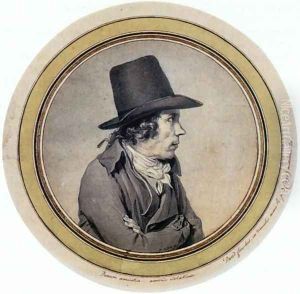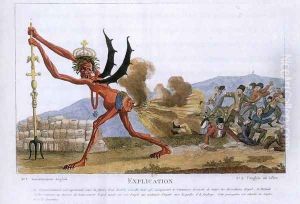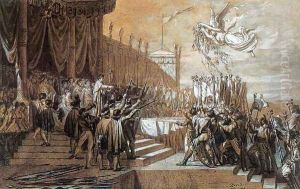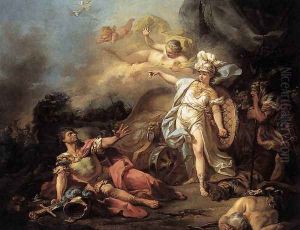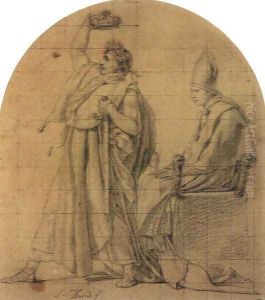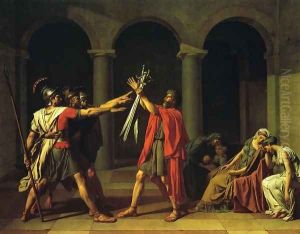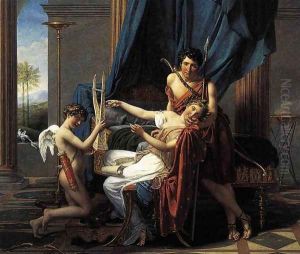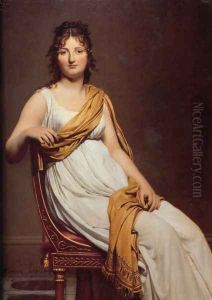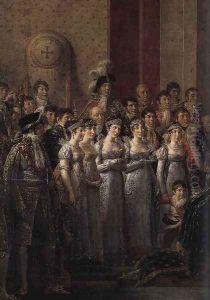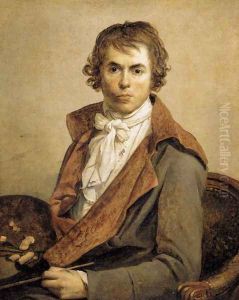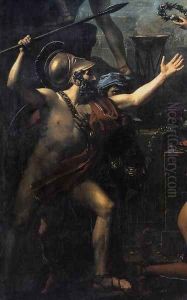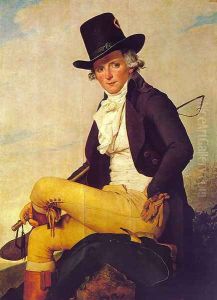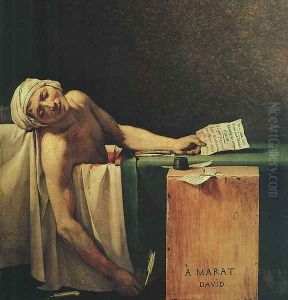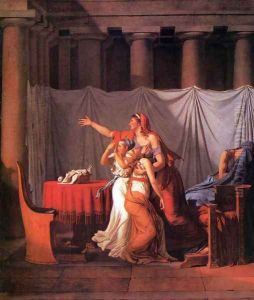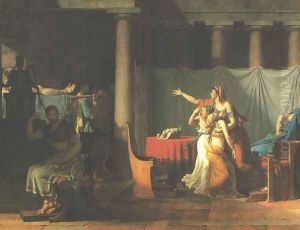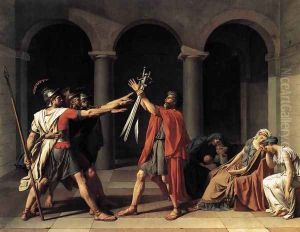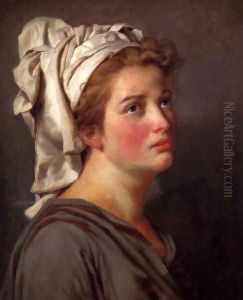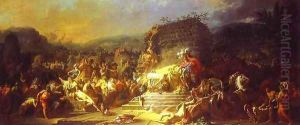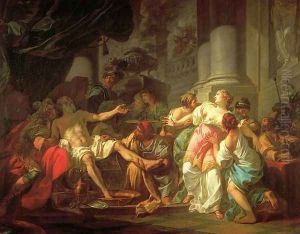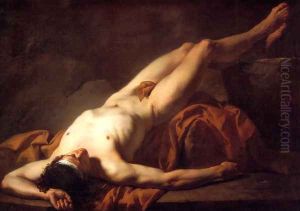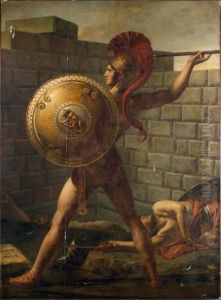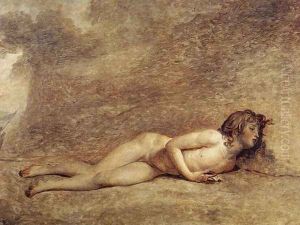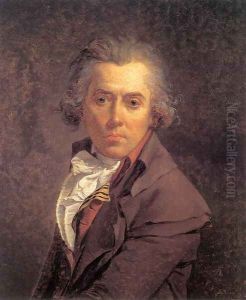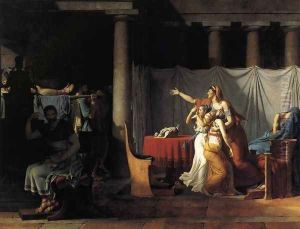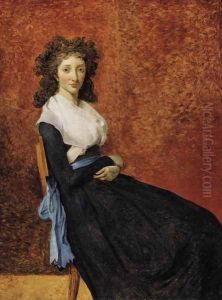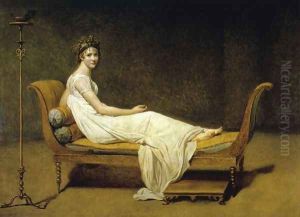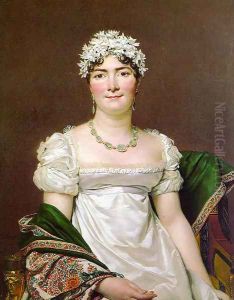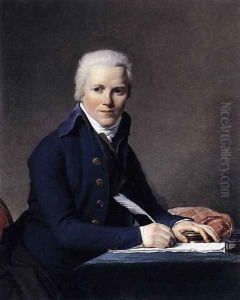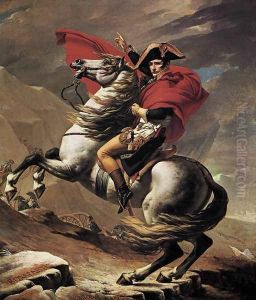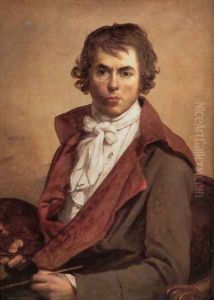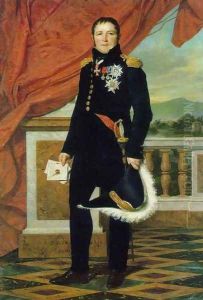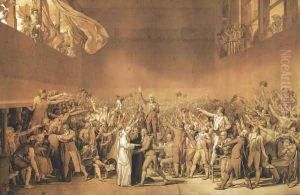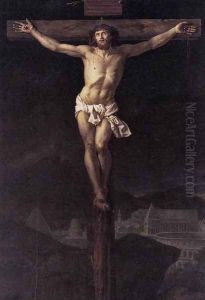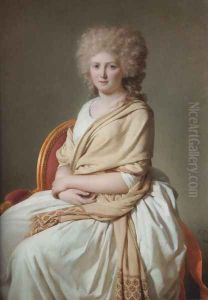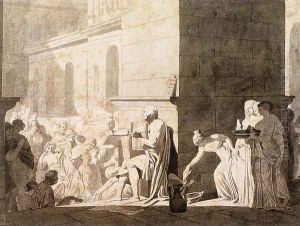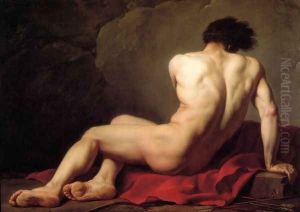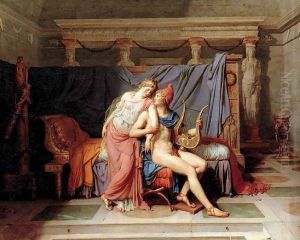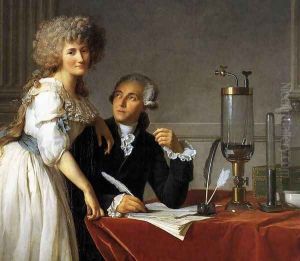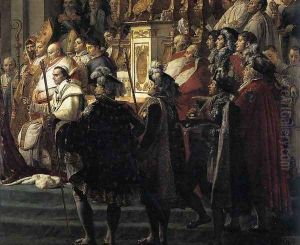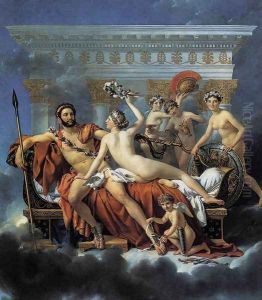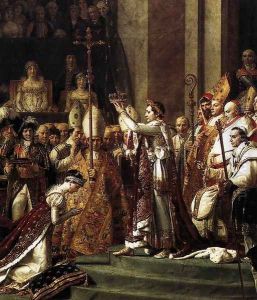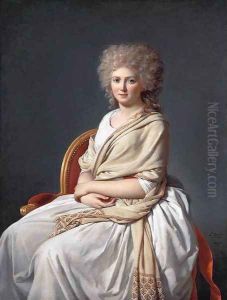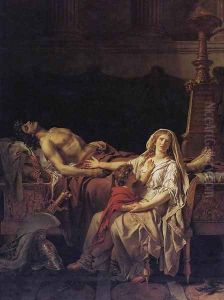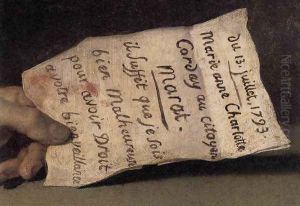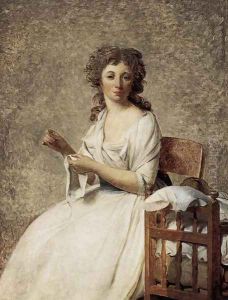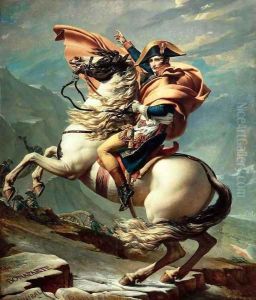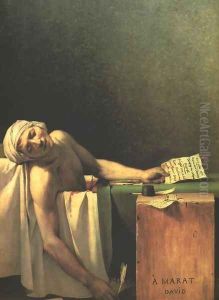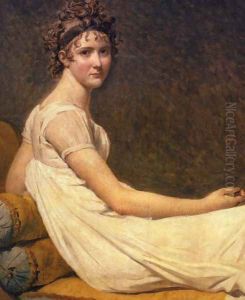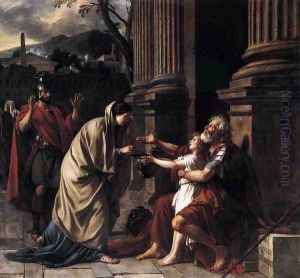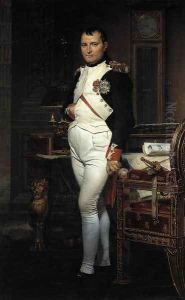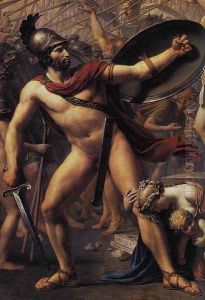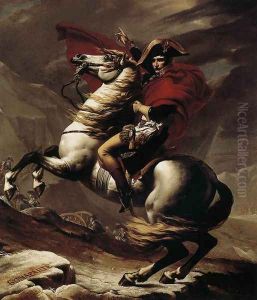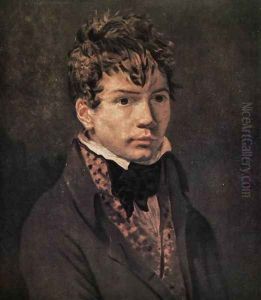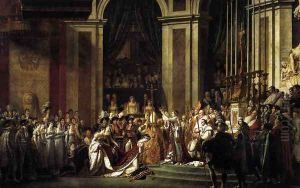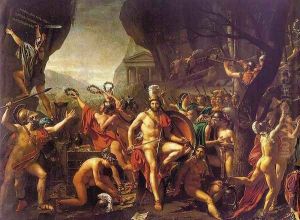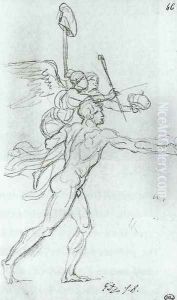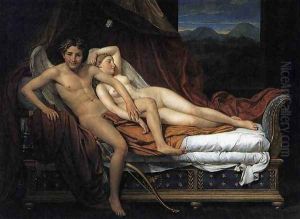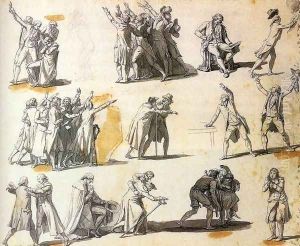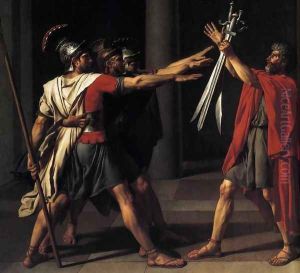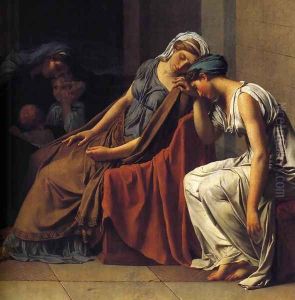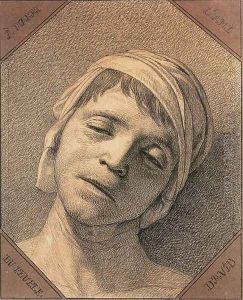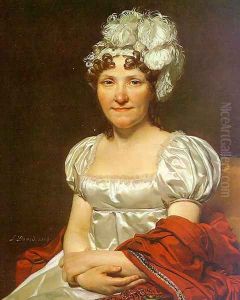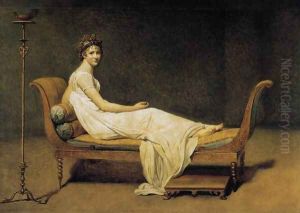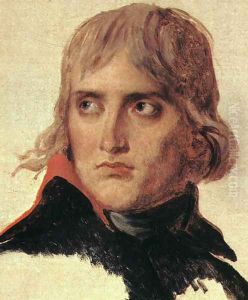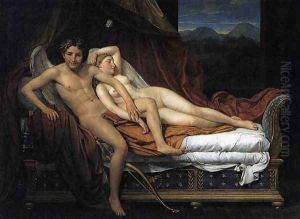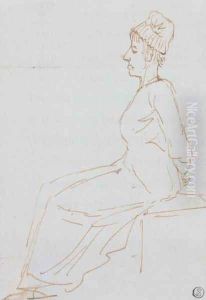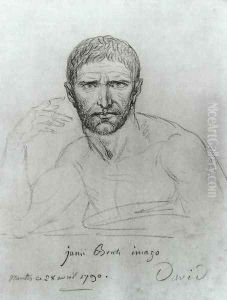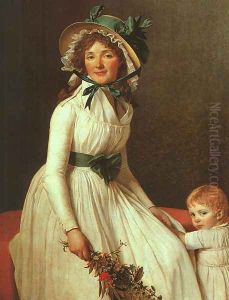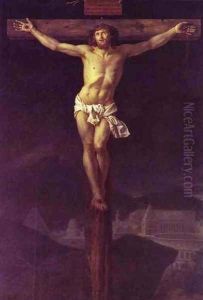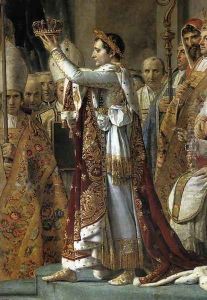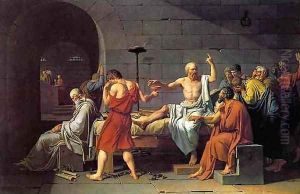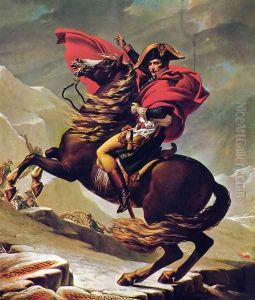Jacques Louis David Paintings
Jacques Louis David was a highly influential French painter in the Neoclassical style, considered to be the preeminent painter of the era. Born in Paris on August 30, 1748, into a wealthy family, David was left orphaned at a young age. He was raised by his uncles who provided him with a good education. His interest in art led him to the Royal Academy of Painting and Sculpture, where he trained under Joseph-Marie Vien, a proponent of the neoclassical movement. David quickly gained recognition for his talent, winning the prestigious Prix de Rome in 1774, which afforded him the opportunity to study in Rome.
In Rome, David was deeply influenced by the classical art and the Renaissance masters, which shaped his style and ideology. He sought to revive the classical ideals of beauty, morality, and virtue in his art, moving away from the frivolousness he perceived in the Rococo style that was prevalent before him. His breakthrough came with the painting 'The Oath of the Horatii' (1784), which became emblematic of the Neoclassical movement. It depicted themes of patriotism and sacrifice, mirroring the growing unrest in France that would lead to the French Revolution.
David's art and political life were deeply intertwined. An ardent supporter of the Revolution, he aligned himself with the Jacobin faction and became a close ally of Maximilien Robespierre. During the Reign of Terror, David was an active participant in the revolutionary government and was involved in organizing revolutionary festivals and designing propaganda. His paintings from this period, such as 'The Death of Marat' (1793), reflect his political commitments and have become iconic images of the Revolution.
Following the fall of Robespierre and the Jacobins, David was imprisoned twice and narrowly escaped execution. After his release, he aligned himself with Napoleon Bonaparte, becoming his official painter. David produced several grandiose portraits and historical paintings that glorified Napoleon’s regime, including 'The Coronation of Napoleon' (1805-07). However, after Napoleon's fall, David was exiled to Brussels in 1816, where he continued to paint until his death in 1825.
Throughout his career, David transformed the landscape of French painting, advocating for a style that embraced classical simplicity and grandeur. His work had a profound impact on the direction of European art, influencing generations of artists. David's legacy is not only in his paintings but also in his role as a teacher, mentoring future leaders of the Romantic movement like Eugène Delacroix and Jean-Auguste-Dominique Ingres. Jacques Louis David died in Brussels on December 29, 1825, leaving behind a body of work that continues to be celebrated for its formality, emotional depth, and political engagement.
